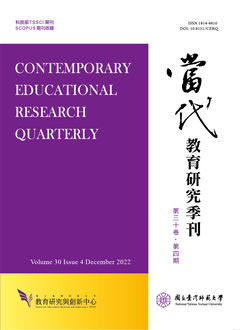

Purpose
In this study, we thoroughly analyzed qualitative data obtained from peer-teachers, students, and students’ parents with the aim of identifying the three groups’ expectations of the evaluated teachers and determining the differences in their perceptions. Design/methodology/approachTo achieve these aims, we analyzed 6,000 statements made by the three groups (peer-teachers, students, and their parents) in the teacher evaluation for professional development conducted in 2015, and adopted content analysis approaches including the emergent coding method and matrix coding. To ensure the trustworthiness of the data, we rigorously followed the steps suggested by Haney, Russell, Gulek, and Fierros (1998). FindingsWe found that the three groups’ expectations for teachers fit into fifteen basic themes that we divided into four categories – “teaching and learning,” “counselling and guidance,” “relationships with students,” and “work attitudes.” The specific themes within these four categories were as follows: effective teaching, various learning activities, subject matter expertise, instructional media, proper assignments and tests, correcting students’ behavioral issues, communicating with parents, career guidance, safety supervision, approachability and kindness, encouraging students, non-discrimination, enthusiasm, collaborating with peer-teachers, and professional development. In addition, we identified the distinct gaps between the three groups’ responses. Originality/valueSignificantly, this study empirically showed that the three major primary and secondary school stakeholders (peer-teachers, students, and students’ parents) have clear but distinct expectations for how teachers perform their four essential roles: teaching and learning, counselling and guidance, relationships with student, and work attitudes. These findings may have implications for teachers’ instructional strategies, emerging expectations for teachers, and the current teacher evaluation for professional development.

本著作係採用創用 CC 姓名標示-非商業性 3.0 台灣 授權條款授權.
本刊國立台灣師範大學教育研究與創新中心
106台北市和平東路一段162號 | 電話: 02-7749-3670 | E-mail: cerecerq@gmail.com
教創中心 | 師大 | 電子報 | 線上投審系統
本刊由國家科學及技術委員會人文社會科學研究中心補助經費
© 2014 CERI-NTNU
